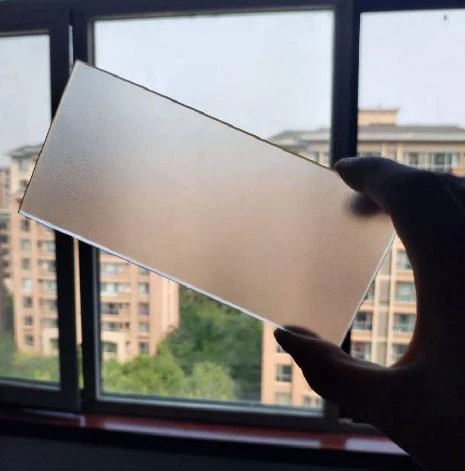The Role of Horticultural Float Glass in Modern Agriculture
Horticultural float glass has emerged as a vital component in modern agriculture, particularly in the field of greenhouse construction and management. This specialized type of glass offers numerous benefits that contribute to the optimization of plant growth conditions, thereby enhancing productivity and sustainability in farming.
Float glass is manufactured by floating molten glass on a bed of molten tin, resulting in a flat and smooth surface. This uniformity is crucial for horticultural applications, as it allows for precise control over light transmission and heat retention—the two essential factors that influence plant growth. Horticultural float glass is engineered to provide maximum light transmittance while minimizing distortion, ensuring that plants receive the ideal spectrum of sunlight necessary for photosynthesis.
One significant advantage of horticultural float glass is its ability to filter UV light. Certain wavelengths of UV light can be harmful to both plants and humans. By selectively filtering out these harmful rays, horticultural float glass protects plants while creating a safer environment for workers in greenhouses. This characteristic not only promotes a healthier growth environment but also enhances the overall quality of the crops produced, making them more appealing to consumers.
Moreover, horticultural float glass possesses excellent thermal insulation properties. Greenhouses constructed with this type of glass maintain a stable internal temperature, which is crucial for plant health, especially during extreme weather conditions. This insulation reduces the need for additional heating or cooling, leading to lower energy consumption and operating costs. As sustainability becomes increasingly important in agriculture, the energy efficiency provided by horticultural float glass aligns perfectly with modern farming practices.
horticultural float glass
Another notable feature of horticultural float glass is its durability
. Unlike some alternative materials, this glass is resistant to weathering, ensuring that greenhouses can withstand harsh environmental conditions over time. Its strength and low maintenance requirements translate to longer lifespan and reduced need for replacements, making it a cost-effective choice for growers.
In addition to these physical properties, horticultural float glass can be manufactured in various sizes and thicknesses, providing flexibility for different greenhouse designs. Whether for small-scale hobbyist greenhouses or large commercial operations, there is a suitable horticultural float glass option available. This adaptability allows growers to optimize their structures according to specific crop needs and local climatic conditions.
As the agricultural sector continues to evolve, the role of horticultural float glass becomes increasingly significant. Its ability to create a controlled environment by maximizing light exposure, conserving energy, and ensuring durability highlights its importance in advancing agricultural practices. As more growers adopt sustainable and efficient technologies, horticultural float glass will undoubtedly play a pivotal role in the future of modern agriculture, enabling the cultivation of healthy plants in optimized conditions.
In conclusion, horticultural float glass is not just a construction material; it is a catalyst for innovation in agriculture, enhancing both efficiency and sustainability in plant production. Its unique properties make it an essential choice for anyone looking to invest in the future of sustainable farming.
 Afrikaans
Afrikaans  Albanian
Albanian  Amharic
Amharic  Arabic
Arabic  Armenian
Armenian  Azerbaijani
Azerbaijani  Basque
Basque  Belarusian
Belarusian  Bengali
Bengali  Bosnian
Bosnian  Bulgarian
Bulgarian  Catalan
Catalan  Cebuano
Cebuano  Corsican
Corsican  Croatian
Croatian  Czech
Czech  Danish
Danish  Dutch
Dutch  English
English  Esperanto
Esperanto  Estonian
Estonian  Finnish
Finnish  French
French  Frisian
Frisian  Galician
Galician  Georgian
Georgian  German
German  Greek
Greek  Gujarati
Gujarati  Haitian Creole
Haitian Creole  hausa
hausa  hawaiian
hawaiian  Hebrew
Hebrew  Hindi
Hindi  Miao
Miao  Hungarian
Hungarian  Icelandic
Icelandic  igbo
igbo  Indonesian
Indonesian  irish
irish  Italian
Italian  Japanese
Japanese  Javanese
Javanese  Kannada
Kannada  kazakh
kazakh  Khmer
Khmer  Rwandese
Rwandese  Korean
Korean  Kurdish
Kurdish  Kyrgyz
Kyrgyz  Lao
Lao  Latin
Latin  Latvian
Latvian  Lithuanian
Lithuanian  Luxembourgish
Luxembourgish  Macedonian
Macedonian  Malgashi
Malgashi  Malay
Malay  Malayalam
Malayalam  Maltese
Maltese  Maori
Maori  Marathi
Marathi  Mongolian
Mongolian  Myanmar
Myanmar  Nepali
Nepali  Norwegian
Norwegian  Norwegian
Norwegian  Occitan
Occitan  Pashto
Pashto  Persian
Persian  Polish
Polish  Portuguese
Portuguese  Punjabi
Punjabi  Romanian
Romanian  Russian
Russian  Samoan
Samoan  Scottish Gaelic
Scottish Gaelic  Serbian
Serbian  Sesotho
Sesotho  Shona
Shona  Sindhi
Sindhi  Sinhala
Sinhala  Slovak
Slovak  Slovenian
Slovenian  Somali
Somali  Spanish
Spanish  Sundanese
Sundanese  Swahili
Swahili  Swedish
Swedish  Tagalog
Tagalog  Tajik
Tajik  Tamil
Tamil  Tatar
Tatar  Telugu
Telugu  Thai
Thai  Turkish
Turkish  Turkmen
Turkmen  Ukrainian
Ukrainian  Urdu
Urdu  Uighur
Uighur  Uzbek
Uzbek  Vietnamese
Vietnamese  Welsh
Welsh  Bantu
Bantu  Yiddish
Yiddish  Yoruba
Yoruba  Zulu
Zulu 

